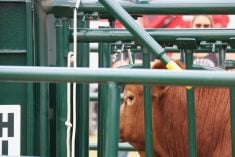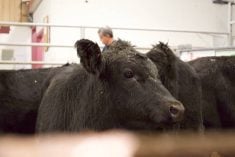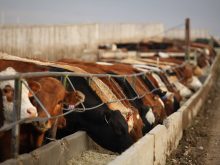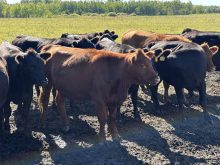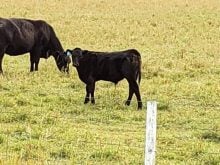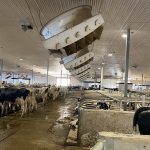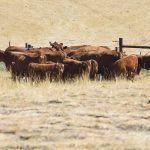Editor’s note: Earlier this year it was announced that the Canadian government was considering a plan for the United Kingdom to join a major international trade agreement known as the Comprehensive Progressive Agreement for Trans-Pacific Partnership (CPTPP). The move has raised the ire of the Canadian meat industry, which has been angry for years over what they say is the British government’s refusal to recognize Canada’s food safety and animal health systems — a refusal that has had the effect of severely limiting Canadian beef and pork exports. A major point of contention is that the U.K. refuses to accept beef treated with growth hormones, a common agricultural practice in Canada. In light of this the Canadian Cattle Association (CCA), Canadian Meat Council, and National Cattle Feeders’ Association have launched a campaign urging producers and the general public to “Say No To A Bad Deal.” In his Oct. 10 column, veterinarian Roy Lewis shares his thoughts on the matter.
Most likely, many of you by now have seen a couple of requests from the Canadian Cattle Association and president Nathan Phinney. Even though you may only be remotely connected to the beef industry — and that includes dairy — or you are involved in other agriculture sectors, you need to act. Help the meat industry to lobby the government to make the right decision and reject the proposal.
In the past, the agriculture industry collectively got the government to remove the need for a health warning label on beef products. It proved that it takes many voices to make the point and we can do that now.
Read Also
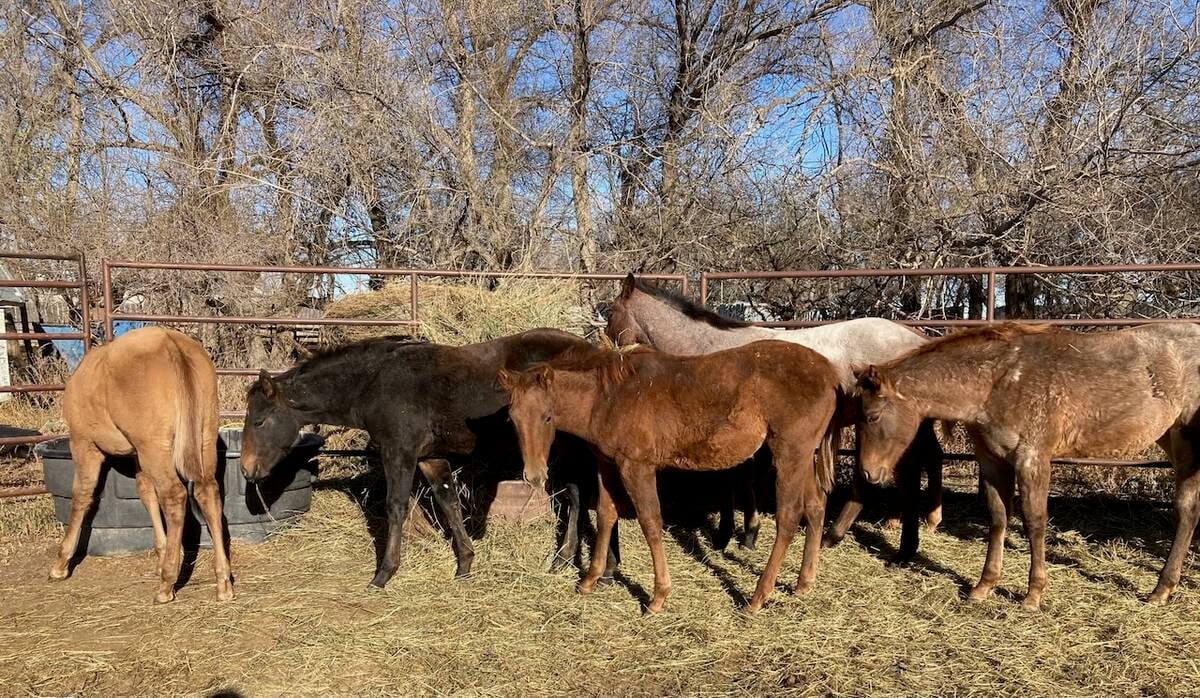
Fall clean-up and bringing animals home at the Eppich ranch
Winter is approaching which meant emoving old fence rows and bringing livestock home before the cold and the snow at the Eppich family ranch.
The argument against allowing the U.K. into the CPTPP centres on their one-sided non-tariff trade barriers applied to Canadian meat. Even though we have an abundant supply of high-quality, safe and nutritious beef, very little goes into the U.K., yet we import their meat products here in Canada. (More than 4,000 tonnes in 2022.)
Science is ignored
For decades now, there has been the argument that “implanted beef” is not safe, even though health scientists and the international body World Organization for Animal Health (OIE) has deemed it totally safe all along.
The U.K. position ignores the fact that growth implants — feed efficiency technology — can actually benefit the environment in terms of reducing global warming and methane production and a reduced carbon footprint. We are able to produce more meat (beef) essentially with less inputs. The meat is still very safe and a good eating experience. Based on many studies over the years, the safety aspect of implanted beef is irrefutable.
A few producers over the years have been involved in programs developed to get unimplanted meat into the U.K., such as the Hormone Free (HF) program which requires that cattle not be implanted. It involves lots of paperwork, as well as urine testing. Some of these programs have come and gone.
Over the years we’ve also seen efforts by a larger group of cattle feeders that formed the Canada Gold Beef brand to pursue the EU market. In spite of getting a decent amount of buy-in, it did not succeed in the end.
There is a lot of very good science supporting Canadian beef production practices and technology, yet due to politics this science can often be ignored. There are numerous examples when it comes to trade and gaining access to foreign countries. Many quick reactions that close borders and stop trade happen, and then it becomes extremely difficult to get those decisions reversed.
It is interesting to note the different values applied by different countries and cultures. During the BSE crisis for example, Japan for several years applied partial restrictions, only accepting imported beef from cattle under 20 months of age, while the rest of the world seemed content with the under-30-month rule. This from a nation which has several people die yearly from an improperly prepared fish but seafood is a delicacy and worth taking the risk, I guess.
This is why organizations like the CCA need your support as they act for the collective benefit of everyone. I honestly wonder why in Canada, when we are not allowed to export virtually any beef products to the U.K., still allow it to export its products to Canada. We have the beef here! I assume the UK imports are specialty meat products, but perhaps those products could be produced in Canada. I am actually surprised the U.K has that much beef to export considering their big population in a small country.
IBR testing
Another non-tariff trade barrier has been in regards to cattle being tested for IBR titres. In Canada it is imperative to vaccinate cattle for IBR to prevent the reproductive and respiratory consequences of the disease. In some EU countries they use what is called a marked vaccine. That means if you test the cattle, labs can tell the blood titre came from an actual vaccine and not the natural form of the disease. Use of this technology could be one way of potentially getting Canadian cattle eligible for export but the authorities need to modify the rules. The import/export rules must be based on sound science and keep up with modern testing methods.
There are multiple reasons to follow the CCA recommendations to not allow the U.K. into the CPTPP. Not to rub salt into the wound, but one has to remember back to the early 2000s and where BSE or mad cow came from. That eventually cost the Canadian cattle industry billions, so lets not forget that. I am sure the CCA will reach out to producers on other issues, so make sure to voice your opinion, answer the polls and show there is definitely no apathy among Canadian livestock producers from coast to coast.




